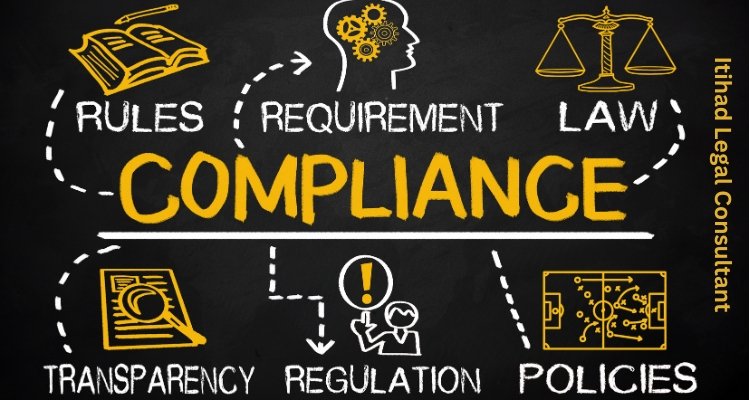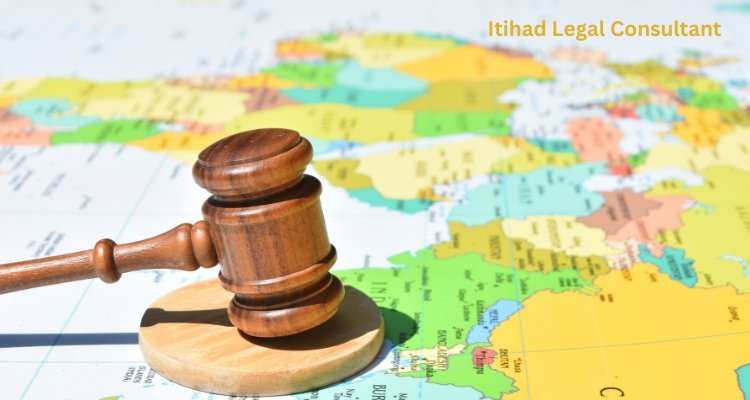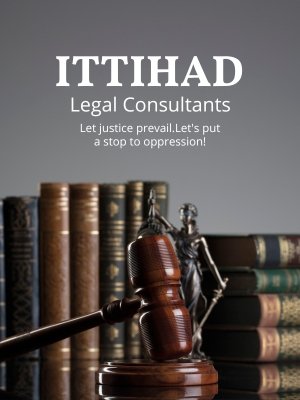Labour Law in Dubai is the cornerstone of the emirate’s employment framework, safeguarding employers’ and employees’ rights and interests. This comprehensive guide provides:
- A detailed insight into the various facets of Labour Law in Dubai.
- Offering a clear understanding of its historical evolution.
- Fundamental principles.
- Practical implications.
Table of Contents
ToggleIntroduction to Labour Law in Dubai
With its thriving economy and diverse workforce, Dubai relies on a robust legal framework to regulate employment relationships. The Labour Law serves as the primary legislation governing the employer-employee dynamic in the emirate. It applies to various industries, including construction, hospitality, finance, etc.
Labour Law in Dubai is designed to provide a fair and balanced platform for employers and employees. It outlines each party’s rights, responsibilities, and obligations, ensuring a harmonious and productive work environment. Moreover, it establishes clear guidelines for dispute resolution, helping to maintain industrial peace.
Historical Development of Labour Law in Dubai
Tracing its origins to the early 1970s, Dubai’s Labour Law has evolved with the emirate’s rapid economic growth. Initially, it was enacted to address the unique labor needs of a burgeoning city. At the time, Dubai primarily relied on industries like fishing and pearl diving. The initial versions of the Labour Law focused on these sectors, providing wage regulations, working hours, and safety conditions.
As Dubai transformed into a global business hub, the Labour Law underwent significant amendments to accommodate the diverse needs of an expanding economy. Over the years, it has been refined to reflect the changing dynamics of the labor market. Today, it addresses various industries, from technology and finance to tourism and manufacturing.
Applicability of Labour Law to Different Employment Categories
Labour Law in Dubai applies to various employment categories, including full-time, part-time, and temporary workers. It extends to both expatriates and UAE nationals, ensuring that all individuals engaged in gainful employment are covered by its provisions.
Full-time employees enjoy the full spectrum of rights under the Labour Law, whether on a fixed-term or indefinite contract. It includes entitlements to leave, end-of-service benefits, and protections against unfair dismissal.
Part-time and temporary workers, while not entitled to the same benefits as full-time employees, are still afforded certain rights. It ensures that even those in non-permanent positions are treated fairly and equitably.
Core Principles and Objectives of Labour Law in Dubai
The Labour Law in Dubai is founded on fairness, equity, and rights protection principles. Its primary objectives include ensuring safe working conditions, fair compensation, and establishing a framework for dispute resolution.

Safe Working Conditions
Dubai’s Labour Law mandates employers provide employees with a safe and healthy work environment. It includes proper ventilation, adequate lighting, and necessary safety equipment. Employers must conduct regular inspections to identify and rectify potential hazards.
Fair Compensation
The law establishes minimum wage standards, ensuring employees receive a fair and just remuneration for their work. It also governs issues related to overtime pay, ensuring that employees are adequately compensated for any additional hours worked beyond the standard workweek.
Dispute Resolution
In the event of disagreements or conflicts, the Labour Law outlines a transparent process for dispute resolution. It typically involves mediation through the Ministry of Human Resources and Emiratisation (MOHRE) or, in more complex cases, referral to the appropriate labor court.
Regulatory Authorities Overseeing Labour Law Compliance

In Dubai, the Ministry of Human Resources and Emiratisation (MOHRE) is the crucial regulatory authority responsible for overseeing compliance with the Labour Law. MOHRE plays a pivotal role in setting labor policies, issuing work permits, and mediating employment-related disputes.
MOHRE is a valuable resource for employers and employees seeking guidance on employment contracts, work permits, and compliance with Labour Law provisions. Their offices and online platforms offer various services to facilitate smooth employment relationships.
Recent Amendments and Updates in Labour Law
In line with the dynamic nature of the labor market, Dubai’s Labour Law undergoes periodic revisions. These amendments aim to adapt to evolving economic conditions, technological advancements, and changing labor force demographics. Staying abreast of these updates is crucial for employers and employees to comply with the latest legal provisions fully.
Example of Recent Amendment: Remote Work Policies
In response to the global shift towards remote work, Dubai’s Labour Law recently introduced provisions governing telecommuting arrangements. These amendments provide a legal framework for remote work, outlining employers’ and employees’ rights and responsibilities in such arrangements.
Comparative Analysis: Dubai’s Labour Law vs. International Standards

Dubai’s Labour Law is often compared with international labor standards. Understanding these comparisons provides valuable insights into how Dubai’s legal framework aligns with global best practices, benefiting businesses and employees.
Example: Leave Entitlements
Compared to some international standards, Dubai’s Labour Law offers competitive leave entitlements for employees. While the minimum leave requirement is 30 calendar days per year, many employers provide additional leave days or flexible arrangements to attract and retain top talent.
Impact of Labour Law on Employers and Employees in Dubai
The Labour Law significantly influences the day-to-day operations of businesses in Dubai. Employers must adhere to its provisions, which cover aspects such as working hours, leave entitlements, and termination procedures. Likewise, employees benefit from its protections, ensuring their rights are upheld.
Employee Empowerment
By providing clear guidelines on rights and entitlements, the Labour Law empowers employees to assert their interests in the workplace. It fosters a culture of transparency and fairness, ultimately leading to higher job satisfaction and productivity.
Employer Compliance
For employers, strict adherence to the Labour Law is a legal obligation and a means of establishing a positive corporate image. Companies prioritizing compliance with labor regulations are more likely to attract and retain high-calibre talent.
Common Misconceptions and FAQs about Labour Law in Dubai
Q: Are there restrictions on terminating an employment contract in Dubai?
A: The Labour Law outlines specific conditions and procedures for employers and employees when terminating an employment contract. It’s essential to adhere to these regulations to avoid potential legal consequences.
Example Scenario:
An employer must provide a valid reason for terminating an employee’s contract, such as consistent poor performance or a breach of company policies. Additionally, the employer must serve a notice period or provide compensation in place of notice.
Q: What are the standard working hours in Dubai according to the Labour Law?
A: As per the Labour Law, the standard working hours in Dubai are eight hours per day, with a maximum of 48 hours per week. Any work beyond these hours is considered overtime, subject to additional compensation.
Example Scenario:
If an employee is required to work beyond the standard hours due to a specific project, they are entitled to overtime pay at a rate higher than their regular hourly wage.
Q: How is end-of-service gratuity calculated in Dubai?
A: End-of-service gratuity is calculated based on the employee’s length of service. The compensation is 21 days’ yearly salary for the first five years of service. After five years, it increases to 30 days’ pay per year.
Example Calculation:
If an employee has worked for seven years at a monthly salary of AED 5,000, their gratuity would be calculated as follows:
(5,000 * 21 days * 5 years) + (5,000 * 30 days * 2 years) = AED 210,000
Critical Resources for Further Understanding of Labour Law in Dubai

For comprehensive guidance on Dubai’s Labour Law, Ittihad Legal Consultancy serves as a reputable resource. Their expert team offers in-depth knowledge and practical advice, ensuring businesses and individuals confidently navigate the legal landscape.
In conclusion, a thorough understanding of Dubai’s Labour Law is essential for employers and employees. By adhering to its provisions, businesses can create a conducive work environment while employees enjoy their rights and protections. Stay informed about the latest updates to ensure compliance and foster a harmonious workplace. For further guidance and expert advice on navigating Dubai’s Labour Law, Ittihad Legal Consultancy stands ready to assist. With their expertise, you can confidently navigate the legal landscape and build a successful and compliant workforce.







